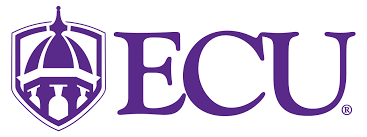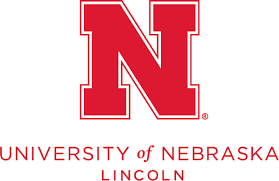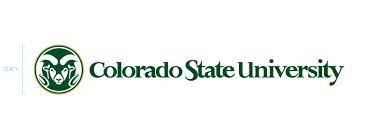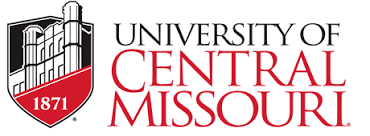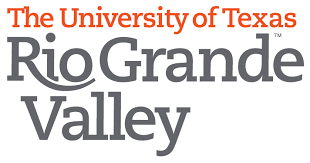Ready to find your ideal master's program?
www.mastersprogramsguide.com is an advertising-supported site. Featured or trusted partner programs and all school search, finder, or match results are for schools that compensate us. This compensation does not influence our school rankings, resource guides, or other editorially-independent information published on this site.
The food we eat has an impact on how we feel. But it goes beyond that. It also impacts social problems like rising healthcare costs and chronic disease.
The time for solid dietary education is now. It’s never been more relevant. With a master’s in food science and technology, you can make a real impact.
Why is it so difficult for so many to eat healthy food every meal? What is a healthy meal? What societal issues impact the way people eat? You’ll answer all these questions while earning your food science degree.
It makes sense that the food and nutrients we ingest have a prime role in keeping us healthy and happy. The saying, “You are what you eat” doesn’t seem far from the truth. A master’s in food science and technology can give you the tools to change people’s lives.
What better job satisfaction can you have than that?
So what will you learn in a master’s program in food science and technology? They teach students nutrition and health information. There is also an emphasis on the business aspects of health. You’ll even learn about the development of management and leadership skills. The learning of these broad skills sets a foundation for future success. That’s true no matter the career you choose.
What Will You Study in an Online Master’s in Food Science Degree?
Core food science courses graduate students might take in a master’s in food science will cover topics like:
- Food safety
- Current problems and trends in the food industry
- Nutrition and food technology
- Food safety regulations and food law
- Food processing
- Food microbiology
- Scientific knowledge and research programs
- Medical nutrition therapy
- Functional nutrition
- Food industry practices
- Food systems and food research
- Food business management
- General chemistry and advanced food chemistry
- Food engineering
- Quality control and quality assurance in food safety
- Life sciences
- Scientific principles of basic nutrition
- Food biotechnology
- Sensory evaluation
- Safe food practices and critical control points
- Food analysis and nutritional assessment
- Science and technical aspects of food preservation (often fruit and vegetable products)
- Public health policy
- Hazard analysis
- Agricultural science
- Food commodities
As you can see, the online classes listed above are quite diverse. Each food science program teaches students about different aspects of the entire food chain. Each online masters in food science is different. Some focus more on functional nutrition, while others focus on public health. Ask questions to find the online masters in food science that will best help you meet your goals!
Many online master’s in food science degrees also include food science courses as part of the food science program that prepare students to sit for a food safety certification exam. You may even be able to take courses that allow you to explore personal and professional interests in food systems. You may even complete a dietetics internship program!
Overall, an online master’s degree in food science will help you develop the essential skills you need to meet your academic and career goals. Whether you want to work directly with food products in labs or you’d rather conduct research on pathogens, you can take courses to match your interests. You’ll gain strong practical skills, like communication and critical thinking skills, as well.
What Can You Do With an Online Master’s in Food Science Degree?
With a master’s in food science, job options include:
- Agricultural and food scientists
- Food science technicians
- Health educators
- Registered dietitian nutritionists
- Food technologists
- Agricultural professionals
- Food science technology development and research
- Administrators and policymakers in food regulatory affairs
Food science professionals are in demand in a variety of professions all around the world. An online master’s in food science degree will go a long way in preparing you for these roles! In some cases, you may even gain the background necessary to pursue ancillary programs like those in veterinary medicine or other scientific disciplines, too.
Admission Requirements and Financial Aid for an Online Master’s in Food Science Degree
Admission requirements for an online Master’s in Food Science degree vary among accredited institutions. International applicants may be required to provide TOEFL scores and transcripts in their native language. However, academic standards vary.
Applicants should expect to submit an online application, at least two letters of recommendation, and their curriculum vitae.
Some programs may have a minimum GPA of 3.0. Others require prerequisite courses in food science and human nutrition. Work experience in the food industry may be required. There’s often a recommended minimum of at least two years.
The application process may also entail a GRE requirement, a comprehensive exam. It’s crucial to research each program’s application requirements and deadlines. Some programs offer rolling admissions. Others may only allow spring or fall admission. Start dates may also vary.
Financial aid opportunities for an online Master’s in Food Science vary from program to program. Some programs offer scholarships, work-study programs, and graduate assistantships.
Find the Best Master’s in Food Science Degree
Why do we choose to pay attention to affordability in this post? Education has become so expensive in the past few decades. You know that! Many master’s graduates are drowning in educational loan debt. Many regret the decision to go back to school.
Education can be affordable. It can provide a good return on investment. But it takes diligence. You must search out programs that offer a top-notch education. But it should be at prices that don’t have you mortgaging your house to earn your degree.
We get it. You’re busy with everything else you have going on in your life. That’s why we created this review. We want you to have the most accurate information so you can make a well-informed decision.
Without further ado, let’s get started in our ranking of the most affordable online masters in food science.
See Also: 10 Best Master’s in Food and Science Technology Online
What Are the Best Affordable Online Master’s in Food Science and Technology Degrees?
We know that you have educational goals that you’re itching to pursue. You may not know where to start. The editors of Master’s Programs Guide utilize a unique ranking methodology. It’s based on the following five aspects:
25% Overall Degree Affordability: Average cost of undergraduate and graduate tuition per school
25% Graduation Rate: Number of students who start at the university and finish there
20% Earnings Potential: Average mid-career salary of school alumni
20% Selectivity: The number of students who apply versus the number who are get accepted
10% Online Graduate Offerings: The number of programs offered online in each department
At Master’s Programs Guide, we strive to do our best to guide you and your family toward a fruitful academic career. The pursuit of knowledge is a noble one. We want to help you reach your goals.
Top Affordable Online Masters in Food Science and Technology Degrees
#1. East Carolina University
Master of Science in Nutrition
East Carolina University is the fourth-largest university in the state. It has a population of more than 29,000 students. The Pirates are fond of purple and gold, the school’s official colors. PeeDee the Pirate is the school’s mascot. You can see him at NCAA Division I sporting events. Planning to visit this university in person? Call ahead to get a tour guide. The school is composed of three campuses covering close to 1,500 acres.
But you don’t have to study on campus to access the phenomenal Master of Science in Nutrition.
The Master of Science in Nutrition from East Carolina University is designed for dietitians knowledgeable in food science. It’s also great for those without this extensive background. This is an online food science program. It’s not offered on campus. Those living in Alabama, Massachusetts, Minnesota, Maryland, and Ohio will have to look for another food science program. This university doesn’t offer online courses to students in these states.
The MS in nutrition has 33 semester hours of coursework. Students can choose between a thesis option and a non-thesis option. The thesis option asks students to travel to the main campus to complete their degree. The non-thesis option includes a research project. Both the thesis option and the non-thesis option consist of the same core curriculum. It includes:
- Human Nutrition in Physiology and Metabolism
- Biostatistics for Health Professionals I
- Methods in Nutrition Research
The research/professional practice component of the food science program is unique. This is where the options diverge. The non-thesis option has:
- Management in Dietetics
- Review of Current Literature
- Seminar in Nutrition
The thesis option includes two classes. These have three credit hours each:
- Biostatistics for Health Professionals
- Seminar in Nutrition
The university asks students to have extensive knowledge of nutrition and science. All incoming students must have taken the following:
- A general biology course
- A survey of human physiology class and lab
- A general chemistry class and lab
- An organic chemistry class and lab
- Nutrition science
- Advanced vitamins and minerals
- Nutritional biochemistry and metabolism
- Life cycle nutrition
#2. Texas Tech University
Master of Science in Nutrition and Dietetics
Until 1969, Texas Tech University was called Texas Technological College. It opened in 1923. TTU has a student body of almost 40,000 students. It is the seventh-largest university in Texas. The school’s mascot, the Masked Rider, was first called the Ghost Rider. It’s reminiscent of Zorro wearing the school’s scarlet and black colors. Texas Tech University counts among its alumni CEOs of Fortune 500 companies, astronauts, and professional athletes.
The Master of Science in Nutrition and Dietetics from Texas Tech University is designed for practicing dietitians. It’s also great for students finishing their dietetic internships.
This 33-credit hour food science program provides in-depth knowledge of food science. Students gain the skills needed to conduct nutritional science research. This is a non-thesis degree. It focuses on applicable clinical knowledge instead of extensive research. You will learn this skill, though, too.
Four courses form the core requirement of this degree. These include:
- Introduction to Nutrition Research
- Biostatistics in Nutrition
- Clinical Application: Carbohydrates, Proteins, and Lipids
- Clinical Applications: Vitamins and Minerals
After completing the core requirements, students can select between 14 different elective courses. Options include:
- Nutrition Support to Nutrition
- Eating Disorders to Pediatric Nutrition
Students may add a concentration to their degree. This is done by taking three courses of nine credit hours of coursework. The three concentrations are:
- Nutrition and Healthy Weight
- Nutrition and Sports
- Nutrition in the Life Cycle
#3. University of Nebraska-Lincoln
Master of Science in Nutrition and Health Sciences
This university opened in 1869. The University of Nebraska system has 52,000 students spread over three university campuses. There’s also one medical school, one agricultural college, and one high school.
The University of Nebraska-Lincoln is the flagship institution of the system. It contains almost half of all the students in the system. The University of Nebraska-Lincoln is represented by two mascots. These are Herbie Husker and Lil’ Red. Students are nicknamed the Cornhuskers. This makes more sense when you learn that the school’s original mascots were Corn Cob and then Husker Man.
The Department of Nutrition and Health Sciences of the University of Nebraska offers a Master of Science in nutrition and health science. The university offers food science programs for all types of students and backgrounds. There’s an online Master of Science in dietetics for registered dietitians. There’s also an on-campus Master of Science in nutrition and health sciences. This comes with specializations in either biochemical and molecular nutrition or community nutrition and health promotion. All degrees except the Master of Science in dietetics for RD’s allow students to select a minor along with their major.
The biochemical and molecular nutrition option has 30-credit hours of coursework. At least 20-credit hours are composed of coursework. The remaining ten credit hours are thesis research.
Examples of courses include:
- Molecular Nutrition
- Molecular Nutritional Techniques
- Integrated Principles of Human Nutrition
- Complications of Maternal Obesity
The community nutrition and health promotion track is a 36-credit hour degree. It allows students to select a specialization. This is in either community nutrition and health promotion or nutrition and exercise. This is a non-thesis degree option. You will take classes such as:
- Classroom and Outreach Experiences in Food and Nutrition
- Nutrition: A focus on Life Stages
- Community Nutrition
#4. University of Alabama
Master of Science in Human Nutrition
The University of Alabama is the oldest public university in the state. It opened in 1820. This university was involved in the Civil War, providing Confederate troops to the effort.
Today, the school is known for having one of the winningest football teams in American history. It’s had 17 national championships and 59 bowl appearances. The school’s mascot is Big Al. This is an elephant that was first conceived by Walt Tart, a university student. Walt Disney built the school’s first costume.
The Master of Science in Human Nutrition is for serious students who want to advance as a dietitian or pursue doctoral work. The food science program was designed for registered dietitians. Yet it’s also great for those with a nutrition background. Those meeting the prerequisites can enroll in the food science program.
You’ll have to complete 30 credit hours of coursework to complete the Master of Science in human nutrition program. The food science program allows students to select a concentration. Options include:
- Clinical nutrition
- Community nutrition
- Generalist
The generalist track asks that students take five core classes and five elective classes.
Students in the generalist track take:
- Biostatistics
- Research Methods
- Metabolism of Energy Nutrients
- Advanced Vitamin and Mineral Metabolism
- either Maternal and Infant Nutrition or Nutrition Support for the Critically Ill
The community nutrition track has eight core courses and two elective courses. The courses in this track include:
- Community Nutrition I
- Community Nutrition II
- Maternal and Infant Nutrition
- Child and Adolescent Nutrition
- Research Methods
- Biostatistics
- Epidemiology
- either Childhood Obesity or Nutrition in the Prevention and Treatment of Chronic Disease
If you choose the clinical track, you’ll take seven core classes and three elective classes. The core classes in the Clinical track include:
- Advanced Vitamin and Mineral Metabolism
- Metabolism of Energy Nutrients
- Nutrition Support for the Critically Ill
- Research Methods, Biostatistics
- either Childhood Obesity or Nutrition in the Prevention and Treatment of Chronic Disease
#5. North Dakota State University
Master of Science in Dietetics
North Dakota Agricultural College opened in the late 19th century. It later became North Dakota State University. This university has a student body of over 13,000 students. It is a top ten employer in North Dakota. The NCAA Division I sports teams of this school are often referred to as the Thundering Herd. The school mascot is a bison named Thundar. If you decide to attend this school, you’ll start to see a lot more green and yellow! These are the official school colors.
North Dakota State University is another school with a food science program that caters to each student’s unique food science goals. The school develops leaders in exercise, nutrition, and health. These are leaders who make a real impact on the world.
Students can pursue either a Master of Science in Health, Nutrition, and Exercise Science (HNES) or a Master of Science in Dietetics. The latter is part of the Great Plains Interactive Distance Education Alliance.
The Master of Science in Health, Nutrition, and Exercise Science has concentrations in either exercise/nutrition science or leadership in physical education and sports. The exercise/nutrition science option has three pathways.
Plan A for this degree has 31 credit hours of coursework. Students must complete a thesis. This plan has six core courses. These include:
- Seminar Introduction to HNES
- Introduction to Research Design and Methods in HNES
- Applied Statistics
- Graduate Exercise Physiology
- Nutrition and Wellness
- Physical Activity Epidemiology
Students must take nine credit hours of electives and six credit hours of thesis work.
The plan B option involves a paper that reviews the existing literature of a particular subject. The option consists of the same six core courses. It differs from option A in that students will take 12 credit hours of electives. There are one to three credit hours to write their review paper.
Plan C asks students to complete an internship or capstone experience. Students will take:
- Seminar Introduction to HNES
- Graduate Exercise Physiology
- Nutrition and Wellness
- 12 or more credit hours in electives
They will also complete an internship or independent study.
The Master of Science in Dietetics is a 36-credit hour food science program. There are three courses at the food science program’s core. These include courses in:
- current issues and trends
- basic statistics
- research methods
Students gain a broad knowledge base of nutrition. They take 21 to 24 credit hours in electives. Students complete a thesis, comprehensive paper, or comprehensive project.
#6. Colorado State University
Master of Science in Food Science and Nutrition
Colorado State University opened in 1870. This was six years before Colorado achieved statehood. CSU counts almost 34,000 students among its student body. There are 5,000 online students. The CSU Rams play in NCAA Division I sports. They have amassed nine Mountain West tournament championships. The school’s mascot called CAM is a live ram. The school colors are green, gold, and white.
The Master of Science in Food Science and Nutrition combines the science of food, the psychology of human behavior, and the management aspects of care. This food science program hones your research skills while developing critical thinking. You can combine research with the real-world practice of dietetics. The food science program is for those who are licensed as dietitians. Those without a nutrition background should look at other food science programs. These will provide the education needed to become a dietitian.
The Master of Science in Food Science and Nutrition is a 37-credit hour food science program. It’s part of the Great Plains Interactive Distance Education Alliance (Great Plains IDEA). This is is a program with eight other universities. They collaborate to provide students with the best knowledge. They’re taught by some of the top professors in the nation. Partner universities will teach some classes. But once you’ve completed the degree requirement, you’ll receive a diploma from your home university. In this case, that’s Colorado State University.
The core curriculum for this food science online program consists of these classes:
- Group Study
- Research Methods in Dietetics
- Introduction to Research Methods
- Principles of Quantitative Data Analysis
- Issues in Dietetic Practice
- Micronutrients
Students can study what interests them during the 15 credit hours of elective courses. Students complete a comprehensive research paper to demonstrate theknowledge gained through this food science online program. The research paper courses account for six credit hours of coursework.
#7. University of Central Missouri
Master of Science in Nutrition with a Concentration in Clinical Nutrition
The University of Central Missouri is small compared to other schools we’ve covered. It offers a stellar Master of Science in Nutrition program.
The school is home to around 14,000 students. It traces its history back to 1871 under the name of the Normal School No. 2. The school changed its name from Central Missouri State University to its current version, the University of Central Missouri, in 2006. Mo the Mule is the school’s mascot. He is depicted as a cardinal colored mule on a black background. This corresponds to the school’s official colors.
The Master of Science in Nutrition program from the University of Central Missouri prepares students to become lifelong learners. The online master’s in food science online program is ideal for registered dietitians, nutritionists, and dietetic technicians. It provides in-depth knowledge of nutritional counseling techniques. It helps them become more proficient in applying nutritional principles in clinical settings.
This is a new online master’s in food science program that was created to keep up with the new guidelines by the Academy of Nutrition and Dietetics. These require RD’s to have at least a master’s degree by 2024.
Those in the Master of Science in Nutrition program at the University of Central Missouri’s School of Nutrition, Kinesiology, and Psychological Sciences can choose to concentrate their studies. This is in either clinical nutrition or sports nutrition. The sports nutrition option is a hybrid food science online program. It includes some on-ground visits. The clinical nutrition option is 100% online.
There is both a thesis option and a non-thesis option. The thesis option has 30-semester hours of coursework. The non-thesis option has 33-semester hours of work.
The core curriculum of the clinical nutrition option for the online master’s in food science consists of three courses. These are:
- Nutrition Across the Lifespan
- Macronutrients
- Micronutrients
The thesis option for the online master’s in food science has 12 semester hours in research classes. These are:
- Statistics in Kinesiology
- Introduction to Research in Kinesiology
- Thesis
Non-thesis students will take six semester hours in research. Courses include:
- Seminars in Nutrition and Statistics in Kinesiology
- Introduction to Research in Kinesiology
Students in both the thesis option and the non-thesis option can choose electives. Those in the thesis option take nine semester hours. Those in the non-thesis option take 18 semester hours of electives.
#8. Framingham State University
Master of Education with a Concentration in Nutrition Education and a Specialization in Nutrition Education.
Framingham State University is a small NCAA Division III school. It serves 6,500 students each year. Of these, 4,500 are undergraduate students.
Framingham State University traces its establishment back to 1839. It first opened as The Normal School of Lexington. It counts astronauts, politicians, intellectuals, and the inventor of the chocolate chip cookie, Ruth Graves Wakefield, among its alumni. The ram is Framingham State University’s mascot. Its colors are gold and black.
The Master of Education with a concentration in Nutrition Education from Framingham State University differs from other degrees. This online master’s in food science teaches educators how to develop an effective nutrition education curriculum. The degree is not specific for registered dietitians. It’s agood choice for:
- school nutrition directors
- health and physical education teachers
- nutrition professionals
- health educators
The Master of Education with a concentration in Nutrition Education is a 30-credit hour program. It has ten graduate courses. The core curriculum is divided into education core courses and nutrition core courses.
The education core curriculum includes:
- Learning and Human Development
- Research Methods in Nutrition
- Nutrition Education Programs and Curricula I: Design
- The nutrition core has four classes. These include:
- Contemporary Nutrition Issues for Educators
- Technology in Nutrition Education
- Public Health Nutrition
- a capstone course
Students in this online master’s in food science must select three graduate-level elective courses from a list of nine options.
You’ll be taught by professional dietitians, many of whom have doctoral degrees. Classes are held in course rotations. Certain classes are available just during specific semesters. You’ll want to make sure that you plan out your degree.
Unlike on-campus students, online graduate students can take their comprehensive examinations online.
#9. University of Texas Rio Grande Valley
Online Master of Science in Health Sciences with a Concentration in Nutrition
The University of Texas Rio Grande Valley is one of the newest schools on this list. It may also be one of the most innovative. The school opened in 2013. It is a major public university of the 21st century. It’s the first of its kind in Texas. The school combines the University of Texas at Brownsville/Texas Southmost College and the University of Texas–Pan American. Close to 30,000 students attend this university. This is throughout the school’s six locations. The school’s athletes play in NCAA Division I athletics. The school’s colors are orange, gray, green, and navy.
The Master of Science in Health Sciences with a concentration in Nutrition is unique. It prepares students for management positions in the nutrition field. This degree combines aspects of public health, nutrition, and management degrees.
The school notes that this degree does not qualify graduates to sit for the exam to become a registered dietitian. If this is your goal, your best bet is to find another food science online program.
The MS in Health Sciences with a concentration in Nutrition is a 36-credit hour program. It takes students, on average, one year to complete. Classes exist in an accelerated seven-week format. The tuition for this food science online program is affordable as well.
This online master’s in food science degree is composed of six core courses. These include:
- Health Computer Information Systems
- Introduction to the HealthCare System and Quality Improvement
- Health Care Policy, Organization and Financing
- Research in Health Sciences
- Legal and Ethical Issues in Healthcare
- Professional Proposal Writing
The nutrition specialization portion of this online master’s in food science degree has six courses. These include:
- Pathophysiology of Disease
- Nutrition Throughout the Life Cycle
- Prevention and Treatment of Obesity
- Integrative Nutrition
- Nutrition in Diabetes Patient Care
- Perspectives and Treatment Modalities of Eating Disorders
#10. North Carolina State University at Raleigh
Master of Nutrition
You may know Raleigh, North Carolina, as the capital of the state. But this city is also known for so much more. Raleigh was established in the late 18th century. It is named after Sir Walter Raleigh. He is most famous for being the sponsor of the infamous Roanoke lost colony. This city has given birth to powerful and influential figures in American history, such as Andrew Johnson, the 17th US President.
If you’re looking for an online master’s in food science that emphasizes real-world practical nutrition skills, then look no further than the Master of Nutrition from North Carolina State University. This is a 36-credit hour food science online program. It allows students to take courses from various departments within the university. They gain a broad knowledge base from multiple subject areas.
Students can select between a non-thesis option, a professional science Master of Nutrition in Human Nutrition, or a professional science Master of Nutrition in Feed Science.
The professional science programs lack research related classes.
The professional science options are focused more on practical science topics. These are the ones you’re most likely to encounter in your current or future job. 21 to 24 credit hours are dedicated to science courses. The remaining 12 to 15 credit hours are allocated to professional skill development. Professional skill development can take many forms. This includes:
- consulting with current and future employers
- presenting and teaching scientific information
- management skills
Students in this online master’s in food science will take:
- Principles of Biochemistry or Advanced Nutrition and Metabolism
- Master’s Seminar or Feed Mill Operations and Leadership
- Biochemistry of Gene Expression or Regulations of Metabolism
Students who choose the professional science master option will take courses such as:
- Food Laws and Regulations
- Government & Public Administration
- Laboratory Management and Safety in TED
OTHER NOTABLE FOOD SCIENCE ONLINE PROGRAMS
#11. Bowling Green State University, Main Campus
Location: Bowling Green, Ohio
Degree: Master of Food and Nutrition
Net Price: $17,508.00
#12. Lasell University
Location: Newton, Massachusetts
Degree: Master of Science in Nutrition for Human Performance
Net Price: $28,988.00
#13. Oklahoma State University
Location: Stillwater, Oklahoma
Degree: Master of Science in Dietetics
Net Price: $21,600.00
#14. The University of Texas Rio Grande Valley
Location: Brownsville, Texas
Degree: Master of Science in Health Sciences in Nutrition
Net Price: $16,000.00
#15. University of North Florida
Location: Jacksonville, Florida
Degree: Master of Science in Nutrition and Dietetics
Net Price: $10,809.00
#16. North Carolina Central University
Location: Durham, North Carolina
Degree: M.S. Family & Consumer Science with Nutritional Sciences Concentration
Net Price: $12,470.00
#17. Mansfield University
Location: Mansfield, Pennsylvania
Degree: Master of Science in Nutrition
Net Price: $18,792.00
#18. University of Oklahoma-Health Sciences Center
Location: Oklahoma City, Oklahoma
Degree: Master of Science in Nutritional Sciences
Net Price: $21,158.00
#19. Ball State University
Location: Muncie, Indiana
Degree: Master of Science in Nutrition and Dietetics
Net Price: $13,642.00
#20. University of Georgia
Location: Athens, Georgia
Degree: Master of Science in Foods and Nutrition
Net Price: $18,870.00
#21. Arizona State University-Skysong
Location: Tempe, Arizona
Degree: Master of Science in Nutritional Science (Dietetics)
Net Price: $14,166.00
#22. Kansas State University
Location: Manhattan, Kansas
Degree: Nutrition, Dietetics, and Sensory Sciences Master’s Degree
Net Price: $18,333.00
#23. University of Memphis
Location: Memphis, Tennessee
Degree: Master of Science in Nutrition: Environmental Nutrition
Net Price: $13,174.00
#24. Auburn University
Location: Auburn, Alabama
Degree: Master of Science in Nutrition
Net Price: $17,589.00
#25. University of Kansas
Location: Lawrence, Kansas
Degree: Master of Science in Dietetics and Nutrition
Net Price: $15,781.00
#26. West Chester University of Pennsylvania
Location: West Chester, Pennsylvania
Degree: Master of Science in Community Nutrition
Net Price: $19,091.00
#27. South Dakota State University
Location: Brookings, South Dakota
Degree: Master of Science in Dietetics
Net Price: $18,253.00
#28. University of Utah
Location: Salt Lake City, Utah
Degree: Master of Science in Nutrition and Integrative Physiology with an Emphasis in Nutrition
Net Price: $13,460.00
#29. Texas Woman’s University
Location: Denton, Dallas, and Houston, Texas
Degree: Master of Science in Nutrition
Net Price: $15,000.00
#30. University of North Dakota
Location: Grand Forks, North Dakota
Degree: Master of Science in Nutrition
Net Price: $15,374.00
#31. University of Southern Mississippi
Location: Hattiesburg, Mississippi
Degree: Master of Science in Nutrition and Food Systems
Net Price: $18,190.00
#32. University of Texas at Austin
Location: Austin, TX
Degree: Master of Science in Nutritional Science (MSNS)
Net Price: $14,156.00
#33. University of Wisconsin-Madison
Location: Madison, Wisconsin
Degree: Master of Science in Clinical Nutrition
Net Price: $14,169.00
IF YOU ENJOYED THAT THEN CHECK OUT OUR ARTICLES ON THE TOP 50 HIGHEST PAYING MASTER’S DEGREE PROGRAMS & 40 FASTEST ONLINE MASTER’S DEGREE PROGRAMS!

